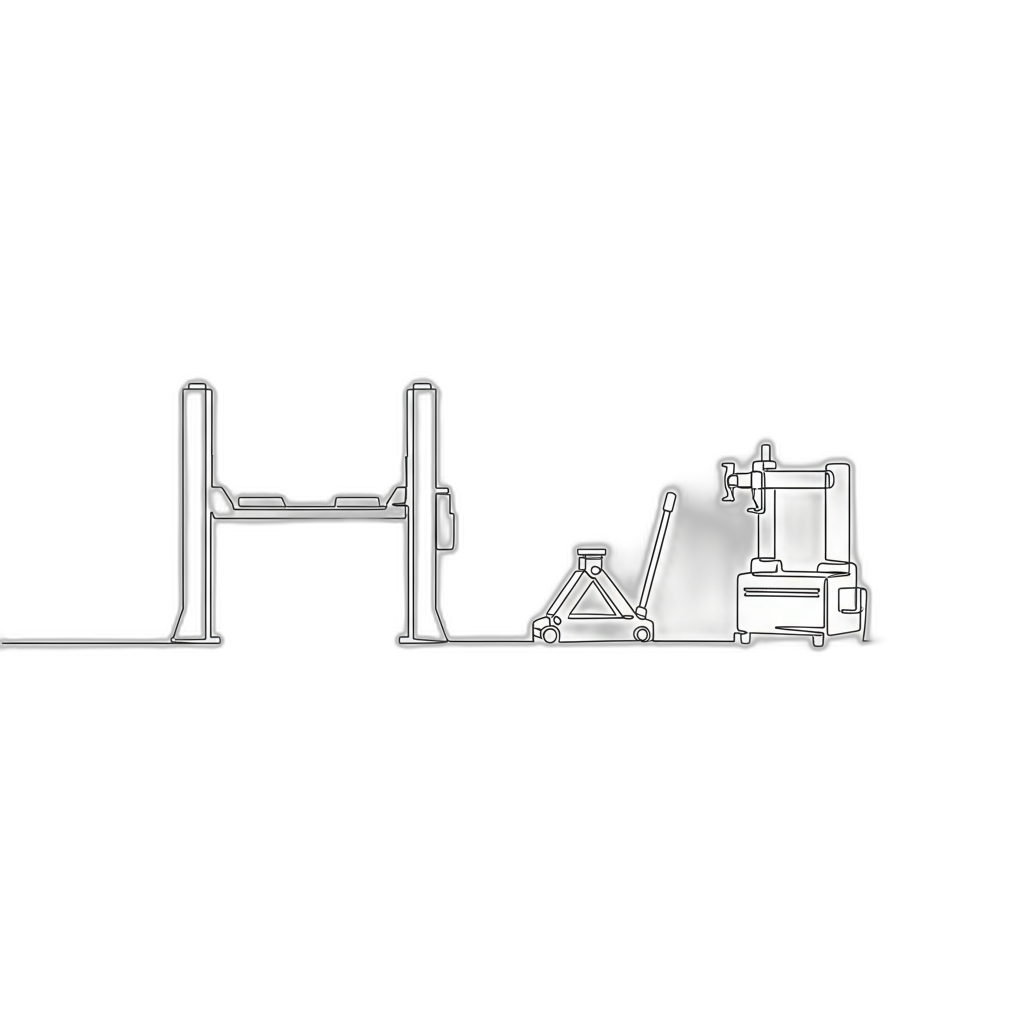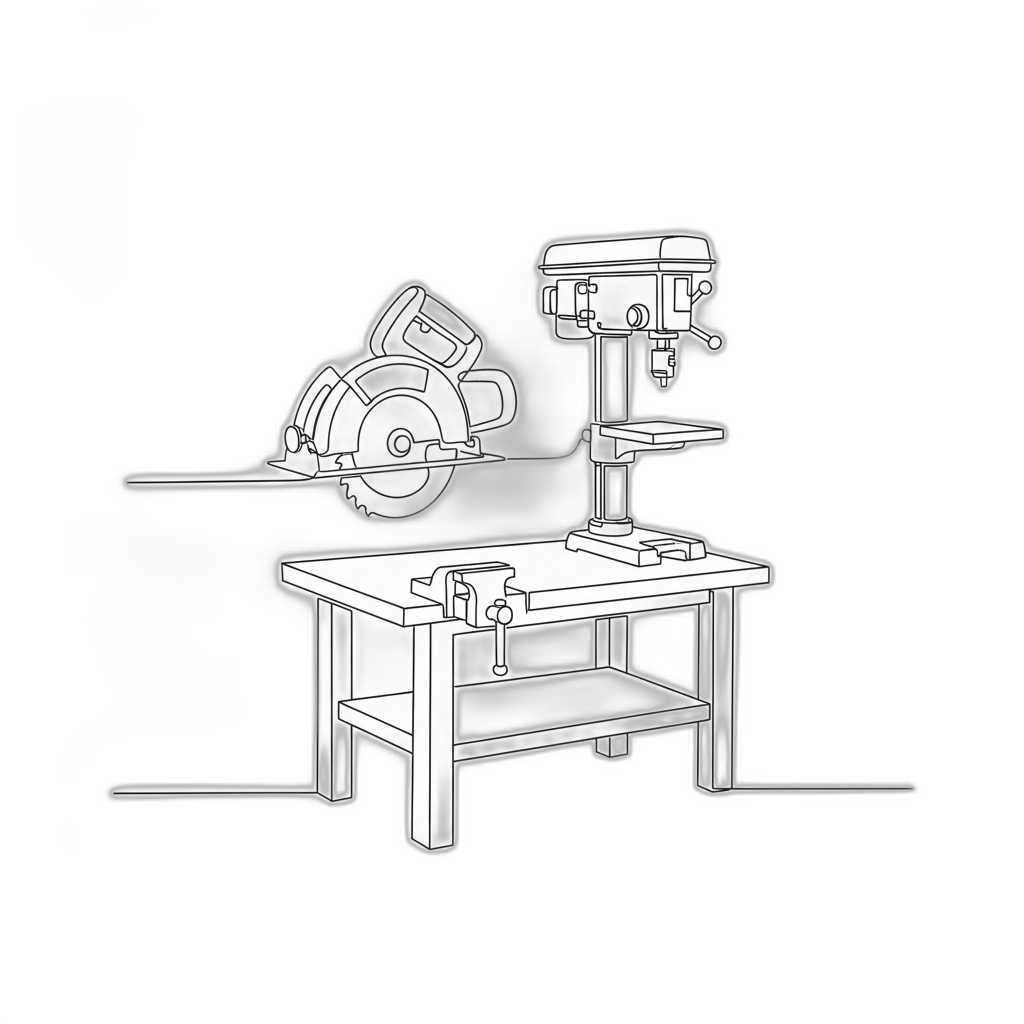About Equipment & Machinery Appraisals for IRS
If you need an Equipment and Machinery appraisal for IRS purposes, start by understanding the tax rules that matter: the IRS requires a qualified appraisal prepared and signed by a qualified appraiser for noncash charitable contributions over $5,000, and the appraiser must sign IRS Form 8283 (see [IRS Form 8283 instructions](https://www.irs.gov/instructions/i8283) and [Publication 561](https://www.irs.gov/publications/p561)). Appraisals used for gifts, estate tax reporting, or charitable deductions must generally be dated no earlier than 60 days before the donation or transfer and must meet USPAP and IRS documentation standards; higher-value donations trigger additional filing rules and attachments. For practical guidance on Form 8283 and tax filing steps, see our [IRS Form 8283 appraisals](/blog/irs-form-8283-appraisals) and the broader [Appraisal IRS](/purposes/appraisal-irs) resource.
Valuing equipment and machinery is data-driven and uses defensible methods you can verify. Appraisers commonly apply the market (sales comparison), cost (replacement cost new less depreciation), and income approaches, with the sales comparison and cost approaches most often required for machinery assignments because many machines have measurable comps or clear replacement costs. The IRS treats equipment as tangible personal property used in a trade or business with useful life beyond one year and often subject to 5- or 7-year depreciation classes. To get a defensible, tax-ready report, gather purchase invoices, maintenance and service logs, serial numbers, detailed photos, and records of hours or production; see our [Equipment & Machinery](/types/equipment-and-machinery) overview and the [steps of a proper equipment and machinery appraisal](/blog/the-steps-of-a-proper-equipment-and-machinery-appraisal) for a checklist and USPAP compliance tips in [USPAP-compliant appraisals](/blog/uspap-compliant-appraisals).
Frequently Asked
Questions
No Frequently Asked Questions Found.
What is IRS?
The Internal Revenue Service (IRS) is the federal agency tasked with administering and enforcing the United States tax system. Established within the Department of the Treasury, the IRS serves as the cornerstone of the nation's revenue collection and tax compliance infrastructure.
The agency's core responsibilities span five critical areas: tax collection, enforcement, taxpayer support, tax policy development, and refund management. Through tax collection, the IRS gathers federal taxes from individuals, businesses, and other entities, ensuring the financial foundation of government operations. Its enforcement division maintains system integrity by conducting audits, identifying potential tax evasion, and ensuring taxpayers meet their legal obligations.
Recognizing the complexity of tax regulations, the IRS provides comprehensive support through publications, online resources, and customer assistance. This commitment helps taxpayers navigate their financial responsibilities more effectively. Additionally, the agency plays a crucial role in developing and implementing tax policies by interpreting congressional legislation and creating clear, actionable regulations.
The IRS also manages the critical process of tax return processing and refund distribution, ensuring taxpayers receive their rightful returns efficiently. By leveraging technological advancements, the agency has modernized its approach, introducing e-filing options, online account management, and improved communication channels.
Beyond routine tax operations, the IRS handles specialized evaluations such as property valuation for tax purposes, including estate tax calculations and charitable contribution assessments. These precise valuations are essential for maintaining accuracy and fairness in the tax system.
At its core, the IRS represents more than a revenue collection agency. It is a vital institution that balances fiscal responsibility with taxpayer support, ensuring the financial mechanisms of the United States function smoothly and equitably.
Why do I need an appraisal for IRS?
When managing tax obligations and financial reporting, understanding the precise value of assets is paramount. An IRS-specific appraisal serves as a critical mechanism for ensuring accurate tax compliance and documentation across various financial scenarios.
The primary purpose of an IRS appraisal is to provide an objective, professionally validated assessment of an asset's fair market value. This valuation becomes essential in multiple contexts, from estate planning to charitable contributions and potential property transactions.
For individuals navigating complex tax landscapes, a professional appraisal offers multiple strategic advantages. It establishes a defensible, documented record of asset value that can withstand potential IRS scrutiny. Whether dealing with real estate, personal property, or significant financial holdings, an accurate appraisal helps taxpayers substantiate their reported values with credible, independent evidence.
The valuation process goes beyond simple number-tracking. It represents a comprehensive analysis that considers current market conditions, specific asset characteristics, and relevant economic factors. By obtaining a professional appraisal, individuals can confidently report asset values, minimize potential tax liabilities, and demonstrate transparency in their financial reporting.
Moreover, an appraisal provides crucial protection during potential tax audits. With detailed documentation from a qualified professional, taxpayers can effectively defend their reported asset values and reduce the risk of penalties or additional tax assessments.
Ultimately, an IRS appraisal is more than a procedural requirement—it's a strategic financial tool that enables precise, compliant, and informed tax management across diverse economic scenarios.
What is an Equipment & Machinery appraisal?
An Equipment & Machinery appraisal represents a comprehensive professional assessment that determines the precise value of industrial assets. This meticulous evaluation provides critical insights into the monetary worth of machinery, tools, and equipment across diverse sectors such as manufacturing, construction, agriculture, and mining.
Professional certified appraisers utilize sophisticated methodologies to analyze machinery value, considering multiple critical factors. These include equipment age, current condition, operational performance, maintenance history, technological relevance, and prevailing market conditions. By incorporating detailed examinations of physical attributes and economic context, appraisers can generate an accurate and defensible valuation.
The appraisal process typically involves three primary valuation approaches: cost, market, and income. The cost approach evaluates replacement expenses while accounting for depreciation. The market approach compares similar equipment transactions to establish fair market value. The income approach estimates potential future economic benefits generated by the machinery.
Key considerations during an equipment appraisal extend beyond simple numerical calculations. Appraisers carefully assess unique characteristics like specialized modifications, technological capabilities, and potential obsolescence. They also examine maintenance records, operational efficiency, and broader industry trends that might influence asset value.
The resulting comprehensive report serves multiple strategic purposes. It provides crucial documentation for financial transactions, insurance coverage, tax planning, potential sales, mergers, and internal asset management. By offering an objective, professional evaluation, equipment appraisals enable businesses to make informed decisions about their capital assets.
Ultimately, an Equipment & Machinery appraisal delivers more than just a monetary figure. It provides a nuanced understanding of an organization's technological infrastructure, supporting strategic planning and financial transparency.
Can I get an Equipment & Machinery appraisal done online?
Online equipment and machinery appraisals have become increasingly feasible with advancements in digital communication technologies. The process typically begins by submitting comprehensive photographs and detailed information about the equipment, including its condition, usage history, and specific characteristics. These materials can be exchanged electronically, allowing appraisers to conduct preliminary assessments efficiently.
When photographic documentation requires supplementation, professional appraisers leverage video conferencing platforms to conduct live consultations. These virtual interactions enable real-time discussions about equipment specifics, allowing for a more nuanced evaluation of complex machinery or specialized assets. Such remote assessment methods can significantly reduce time and travel expenses associated with traditional in-person appraisals.
The effectiveness of online appraisals depends on several critical factors. High-resolution, well-lit photographs that capture multiple angles and key mechanical details are essential for accurate initial assessments. Clients should be prepared to provide comprehensive documentation, including maintenance records, operational history, and any unique modifications or features that might impact the equipment's value.
While online appraisals offer remarkable convenience, they are not universally applicable. Certain highly specialized or intricate equipment may still require in-person examination to ensure a comprehensive and precise valuation. Professional appraisers will typically indicate when a remote assessment is insufficient and an on-site inspection becomes necessary.
Clients should always verify an appraiser's professional credentials and ensure the evaluation meets industry standards, particularly the Uniform Standards of Professional Appraisal Practice (USPAP). This diligence guarantees the reliability and credibility of the appraisal for potential uses such as financial reporting, insurance claims, or resale considerations.
What are the different types of Equipment & Machinery appraisals?
Equipment and machinery appraisers are specialized professionals who provide critical valuation services across diverse industrial sectors. These experts possess deep technical knowledge and industry-specific expertise that enables precise assessment of equipment value. Their professional insights go far beyond basic price estimation, encompassing comprehensive evaluations that consider multiple complex factors.
Different types of equipment appraisers emerge from specific industrial domains, each bringing targeted expertise to the valuation process. Construction equipment appraisers evaluate heavy machinery like excavators and cranes, understanding regional development trends and equipment performance characteristics. Manufacturing equipment specialists focus on production machinery, analyzing technological complexity, usage history, and potential productivity impact.
Agricultural equipment appraisers examine farming machinery with nuanced understanding of seasonal productivity and technological advancements. Medical equipment professionals navigate intricate healthcare technology landscapes, assessing sophisticated diagnostic and surgical instruments. Transportation equipment experts evaluate vehicles and logistics equipment, considering depreciation rates and market demand dynamics.
Heavy equipment appraisers bring specialized knowledge to complex industrial machinery used in sectors like mining and energy. Technology equipment specialists track rapid technological evolution, providing critical insights into rapidly depreciating digital assets and communication systems.
Each appraiser type represents a unique intersection of technical knowledge, market understanding, and industry-specific insights. Their professional assessments provide crucial information for business decision-making, asset management, insurance purposes, and strategic planning across multiple economic sectors.
Why should I get an Equipment & Machinery appraisal?
Obtaining an equipment and machinery appraisal is a strategic necessity that provides comprehensive insights for businesses and individuals across multiple critical domains. Far beyond a simple valuation exercise, these assessments deliver actionable intelligence that supports informed decision-making and financial risk management.
Insurance coverage represents a primary driver for professional appraisals. An accurate valuation ensures precise protection against potential losses, preventing both underinsurance vulnerabilities and unnecessary premium expenditures. By establishing a credible baseline for asset worth, organizations can design insurance strategies that are both protective and cost-effective.
Tax compliance represents another compelling rationale for equipment appraisals. When donating high-value machinery or equipment, a professional assessment becomes essential for substantiating tax deduction claims. These documented valuations provide the necessary transparency to satisfy regulatory requirements while potentially maximizing financial benefits.
Financial reporting demands rigorous asset valuation. Appraisals offer a clear, defensible representation of equipment value on balance sheets, enabling more sophisticated financial analysis. This transparency becomes particularly crucial when attracting investors or securing lending, as financial institutions rely on precise asset assessments to evaluate collateral and organizational health.
Legal proceedings frequently necessitate objective equipment valuations. During complex scenarios like partnership dissolutions or divorce settlements, a professional appraisal provides an impartial benchmark for asset division. The documented valuation serves as a credible reference point for negotiations, potentially mitigating potential conflicts.
Transaction dynamics also benefit significantly from professional appraisals. Whether purchasing or selling machinery, an independent valuation establishes a fair market baseline. This approach fosters trust between parties, facilitates more transparent negotiations, and helps prevent potential disputes arising from subjective price perceptions.
Strategic asset management represents the most forward-looking benefit of equipment appraisals. Regular assessments provide insights into asset depreciation, replacement timing, and potential upgrade opportunities. By understanding the precise value and condition of existing equipment, organizations can make more intelligent decisions about resource allocation, technological investments, and long-term operational planning.
Ultimately, a professional equipment and machinery appraisal transcends mere number-crunching. It represents a sophisticated tool for financial governance, risk management, and strategic organizational development.
How much does an Equipment & Machinery appraisal cost?
Why Do Equipment & Machinery Valuations Matter for IRS Reporting?
Equipment and machinery valuations are critical for businesses and individuals navigating complex financial landscapes and tax reporting requirements. Understanding the fair market value of assets is not just a regulatory necessity, but a strategic financial practice.
Key Reasons Valuations Matter for IRS Reporting
- Tax Compliance and Risk Mitigation
The IRS mandates accurate valuations for:
- Depreciation claims
- Sales deductions
- Investment tax strategies
Inaccurate reporting can trigger penalties, audits, and potential legal complications. - Strategic Asset Management
Comprehensive valuations enable organizations to:
- Make informed acquisition decisions
- Optimize asset portfolios
- Plan strategic liquidations
Updated market assessments provide critical financial intelligence. - Insurance and Risk Protection
Precise appraisals help:
- Determine appropriate coverage amounts
- Ensure complete asset replacement
- Mitigate potential financial losses
Comprehensive documentation protects business continuity. - Estate and Wealth Transfer Planning
Accurate valuations are essential for:
- Complying with IRS gift tax regulations
- Managing inheritance transitions
- Minimizing potential tax liabilities
Professional assessments prevent unexpected financial burdens. - Financial Transparency and Reporting
Reliable valuations support:
- Credible financial statements
- Investor confidence
- Transparent business operations
Maintaining stakeholder trust is paramount. - Lending and Capital Acquisition
Precise valuations influence:
- Loan qualification processes
- Collateral assessment
- Financing terms and conditions
Accurate documentation can enhance borrowing potential.
Ultimately, professional equipment and machinery valuations transcend mere regulatory compliance, serving as a strategic tool for comprehensive financial management and long-term business success.
Understanding the Landscape of Industrial Asset Valuation
Understanding Equipment Valuation Methodologies
Industrial asset valuation is a critical process that determines the value of equipment and machinery, particularly for compliance with IRS regulations. Accurate valuation supports crucial business needs such as financing, mergers, acquisitions, and insurance assessments.
Key Valuation Approaches
- Cost Approach
This method evaluates the cost to replace an asset with a similar one, carefully factoring in depreciation. It is especially effective for:
- Newer equipment
- Specialized machinery without a defined market
- Assets with unique technological specifications
- Market Approach
This approach determines value by analyzing sale prices of comparable assets in the open market. Key considerations include:
- Current market conditions
- Availability of similar equipment
- Recent transaction data
- Income Approach
This valuation method focuses on the expected future income generated by the equipment. It is particularly useful for:
- Specialized machinery capable of producing revenue
- Projecting cash flow efficiencies
- Assessing long-term asset performance
Critical Considerations in Asset Valuation
Businesses must engage qualified appraisers with specialized expertise in industrial asset valuation. These professionals can navigate complex methodological nuances and ensure compliance with rigorous IRS standards.
Key evaluation factors include:
- Equipment age
- Overall condition
- Technological advancements
- Operational efficiency
- Market demand
Importance of Precise Valuation
The need for precision in appraisals is paramount, especially during:
- IRS audits
- Estate planning
- Charitable donations
- Insurance assessments
A comprehensive and professionally conducted appraisal serves multiple critical functions. It protects against potential IRS penalties while providing businesses with valuable insights for strategic decision-making regarding capital assets.
What Determines the Tax Implications of Your Equipment?
Understanding the tax implications of equipment requires a nuanced approach involving multiple critical factors. These determinants directly influence how equipment is valued, depreciated, and reported for tax purposes.
Key Determinants of Equipment Tax Implications
1. Equipment Classification
The IRS categorizes equipment into distinct classifications:
- Personal property
- Real property
- Intangible assets
- Each classification impacts depreciation methods and tax treatment during sale or disposal
2. Depreciation Methods
Different depreciation strategies offer varied tax benefits:
- Straight-Line Depreciation: Consistent annual deductions
- Declining Balance Method: Accelerated depreciation in early years
- Section 179 Expensing: Immediate deduction of qualifying equipment costs
- Each method allocates cost differently, influencing annual taxable income
3. Fair Market Value Assessment
Fair market value (FMV) represents the price between a willing buyer and seller with reasonable market knowledge. Accurate FMV determination is crucial for:
- Ensuring IRS regulatory compliance
- Preventing potential audit complications
- Establishing precise equipment valuation
4. Equipment Condition and Age Factors
Physical characteristics significantly impact tax considerations:
- Older equipment typically has lower depreciation rates
- Well-maintained machinery can support higher market values
- Comprehensive appraisals help establish accurate valuation dynamics
5. Business Use Percentage
The proportion of equipment used for business purposes critically determines tax treatment:
- Only business-used portions can be depreciated or deducted
- Personal use reduces potential tax benefits
- Precise documentation is essential for compliance
Navigating these complex factors requires careful analysis and strategic planning. Understanding these nuances enables businesses to optimize financial outcomes while maintaining full tax compliance.
Navigating Different Valuation Methodologies
Understanding Equipment Valuation Methodologies
When conducting equipment and machinery appraisals for IRS purposes, professionals leverage multiple sophisticated valuation approaches to determine accurate asset value.
Cost Approach: Replacement Value Analysis
- Calculates the expense of replacing an asset with an equivalent item
- Considers acquisition, installation, and depreciation costs
- Most effective for newer equipment with limited market comparables
- Provides a foundational understanding of asset replacement expenses
Market Approach: Comparative Valuation
- Evaluates asset value through current market transactions
- Compares subject equipment with recently sold similar assets
- Factors in equipment age, condition, and technological upgrades
- Optimal in markets with robust comparable data
Income Approach: Economic Contribution Assessment
- Determines value based on potential income generation
- Forecasts future cash flow and discounts to present value
- Particularly useful for income-producing machinery
- Provides insight into economic potential and asset productivity
Methodology Selection Considerations
Selecting the appropriate valuation methodology requires careful analysis of:
- Equipment type and specifications
- Intended operational use
- Current market conditions
- Available comparative data
Professional appraisers often utilize multiple methodologies to create a comprehensive, reliable valuation that meets stringent IRS requirements. This multi-faceted approach ensures accuracy and provides stakeholders with a nuanced understanding of asset value.
The Critical Role of Certified Appraisers in Tax Compliance
Certified appraisers are essential professionals who play a critical role in ensuring precise tax compliance for businesses dealing with equipment and machinery valuations. Their specialized expertise directly addresses complex IRS regulatory requirements while providing comprehensive asset assessment.
Key Functions of Certified Appraisers in Tax Compliance
- Accurately determine fair market value of business assets
- Minimize financial risks associated with improper valuation
- Ensure strict adherence to IRS valuation guidelines
- Provide objective and independent asset assessments
Comprehensive Valuation Methodologies
Certified appraisers utilize multiple sophisticated approaches to assess equipment and machinery value:
- Cost Approach: Evaluates replacement expenses for the asset
- Sales Comparison Approach: Analyzes pricing of comparable market assets
- Income Approach: Considers potential future economic benefits generated by the asset
Strategic Importance of Professional Appraisals
In today's complex regulatory environment, professional appraisals serve multiple critical functions beyond tax compliance, including:
- Enhanced financial reporting accuracy
- Improved strategic business planning
- Risk mitigation during potential IRS audits
- Credible documentation for asset transactions
Ensuring Appraisal Integrity
The objectivity of certified appraisers is paramount. By maintaining independence from transactional parties, they guarantee impartial valuations that withstand rigorous scrutiny, particularly during audits or potential disputes.
Businesses must recognize that investing in professional, certified appraisals is not merely a regulatory requirement but a strategic financial decision that protects their long-term economic interests.
Preparing Comprehensive Documentation for IRS Scrutiny
Comprehensive Documentation for IRS Equipment Appraisals
Preparing a thorough equipment and machinery appraisal for IRS purposes requires meticulous attention to detail and strategic documentation. Understanding the nuanced requirements can help ensure your valuation withstands potential IRS scrutiny.
Key Documentation Preparation Steps
- Clarify Appraisal Purpose
- Identify specific context (charitable donation, business valuation, depreciation)
- Understand how purpose impacts documentation requirements
- Comprehensive Asset Information Gathering
- Detailed equipment specifications
- Precise make and model
- Serial numbers
- Manufacturing date
- Condition assessment
- Current operational status
- Maintenance history
- Repair documentation
- Financial documentation
- Original purchase price
- Depreciation records
- Current market value estimates
- Professional Appraiser Selection
- Seek certified professionals with recognized credentials
- Verify expertise in specific equipment type
- Confirm understanding of IRS valuation standards
- Report Compliance Requirements
- Comprehensive valuation methodology
- Signed appraiser declaration
- Detailed market comparables
- Clear valuation justification
- Supplementary Documentation
- High-quality equipment photographs
- Original purchase invoices
- Warranty documentation
- Maintenance and repair records
Critical Documentation Considerations
A meticulously prepared appraisal demonstrates transparency and increases the likelihood of successful IRS review. By anticipating potential questions and providing comprehensive supporting evidence, you can significantly reduce the risk of challenges to your equipment valuation.
Remember that each piece of documentation should be clear, legible, and directly relevant to establishing the equipment's accurate market value. Consistency and thoroughness are paramount in creating a robust appraisal package.
Avoiding Common Pitfalls in Equipment Valuation
Understanding Valuation Challenges in Equipment Appraisals
Successful equipment and machinery appraisals require careful navigation of several critical challenges to ensure accuracy and compliance with IRS standards.
Key Pitfalls to Avoid
- Outdated Market Data
Equipment values are dynamic, influenced by technological advancements and market fluctuations. Relying on stale information can result in:
- Inaccurate financial assessments
- Significant valuation discrepancies
- Potential tax reporting errors
- Incomplete Condition Assessment
Equipment valuation demands a comprehensive evaluation of:
- Maintenance history
- Operational efficiency
- Wear and tear
- Modification and repair impacts
- IRS Guideline Non-Compliance
Critical considerations include:
- Understanding fair market value definitions
- Applying correct valuation methodologies
- Preventing potential audit complications
- Professional Credential Oversight
Selecting an unqualified appraiser can compromise valuation integrity through:
- Reduced appraisal credibility
- Increased risk of valuation challenges
- Potential non-compliance with regulatory standards
Best Practices for Accurate Valuation
- Regularly update market research
- Conduct thorough equipment inspections
- Verify appraiser credentials
- Understand IRS valuation requirements
- Maintain comprehensive documentation
Proactively addressing these potential pitfalls ensures a comprehensive, defensible equipment appraisal that meets professional and regulatory standards.
Decoding IRS Guidelines for Machinery and Equipment Appraisals
Understanding IRS Guidelines for Machinery and Equipment Appraisals
Navigating the complex landscape of IRS guidelines for machinery and equipment appraisals is critical for businesses and individuals facing tax-related valuations. The Internal Revenue Service maintains specific criteria that ensure precise and defensible asset assessments.
Why Accurate Appraisals Matter
Precise equipment valuations are essential for multiple tax scenarios, including:
- Asset sales documentation
- Inheritance tax calculations
- Charitable contribution reporting
- Potential tax liability management
Inaccurate valuations can result in significant financial consequences, such as unexpected tax penalties or improper reporting.
IRS-Recognized Valuation Approaches
The IRS endorses three primary valuation methodologies:
1. Cost Approach
Evaluates equipment value by calculating replacement costs while factoring in:
- Current replacement expenses
- Accumulated depreciation
- Functional or economic obsolescence
2. Market Approach
Determines value through comparative analysis of:
- Recent equipment sales
- Comparable market transactions
- Current market conditions
3. Income Approach
Assesses equipment value based on potential income generation, considering:
- Projected cash flow
- Expected economic benefit
- Present value calculations
Ensuring Compliance and Documentation
Successful IRS appraisals require meticulous record-keeping, including:
- Original purchase documentation
- Comprehensive maintenance records
- Previous professional appraisals
- Detailed asset condition reports
Selecting a Qualified Appraiser
Choosing an experienced, certified professional is crucial. A qualified appraiser will:
- Understand complex IRS regulations
- Provide defensible valuation methodologies
- Offer comprehensive documentation
- Mitigate potential audit risks
By adhering to these guidelines and working with knowledgeable professionals, businesses and individuals can confidently navigate equipment and machinery appraisals for IRS purposes.
Strategic Approaches to Asset Valuation
When it comes to equipment and machinery appraisal for IRS purposes, utilizing strategic approaches to asset valuation is crucial. Understanding the value of your equipment not only helps in tax compliance but also plays a vital role in financial planning, investment decisions, and business strategy.
Key Valuation Methodologies
Cost Approach
- Determines asset value based on replacement costs
- Assesses original purchase price
- Adjusts for depreciation
- Adds estimated costs for upgrades or repairs
- Most effective for newer equipment with limited market history
Market Approach
- Evaluates current market conditions
- Identifies recently sold similar assets
- Provides real-time market value reflection
- Best suited for equipment with active resale markets
- Directly links appraisal to economic trends and buyer behavior
Income Approach
- Estimates future income generation potential
- Discounts projected income to present value
- Ideal for specialized or unique machinery
- Particularly valuable for revenue-generating assets
IRS Compliance Considerations
Ensuring rigorous compliance with IRS guidelines is paramount in equipment valuation. Appraisers must:
- Adhere to specific valuation standards
- Provide comprehensive documentation
- Develop detailed appraisal reports
- Clearly outline valuation methodology
- Specify data sources and underlying assumptions
By strategically combining these approaches, businesses can achieve a robust and reliable equipment valuation that meets IRS requirements while supporting informed decision-making.
Your Roadmap to Accurate and Compliant Appraisals
Understanding the Purpose of Equipment and Machinery Appraisals
Navigating equipment and machinery appraisals for IRS purposes requires precision, strategic planning, and comprehensive knowledge. The appraisal process is critical for various financial scenarios, including tax deductions, donations, and estate planning.
Why Appraisals Matter
- Determine accurate fair market value
- Ensure strict compliance with IRS regulations
- Minimize potential tax liabilities
- Prevent penalties from incorrect valuations
Key Considerations for Accurate Appraisals
Selecting a Qualified Appraiser
Choosing the right professional is fundamental to a successful appraisal. Consider the following criteria:
- Certifications from recognized professional organizations
- Specialized expertise in specific equipment or industry sectors
- Proven track record of comprehensive and reliable valuations
- Understanding of current market conditions and trends
Valuation Methodologies
Professional appraisers typically utilize three primary approaches:
- Cost Approach: Evaluates replacement cost while accounting for depreciation
- Market Approach: Compares recent sales of similar equipment to establish value
- Income Approach: Estimates present value based on potential future cash flows
Comprehensive Documentation and Reporting
Successful IRS-compliant appraisals require meticulous documentation. A professional report should include:
- Detailed appraisal methodology
- Clear explanation of assumptions
- Supporting market data
- Transparent valuation calculations
Maintaining Appraisal Relevance
Equipment values are dynamic and influenced by multiple factors:
- Technological advancements
- Market fluctuations
- Regulatory changes
- Industry-specific trends
Regular re-evaluations are crucial to maintaining accuracy and compliance. By adopting a strategic approach to equipment and machinery appraisals, you can confidently navigate IRS requirements while protecting your financial interests.








.avif)


























.svg)















